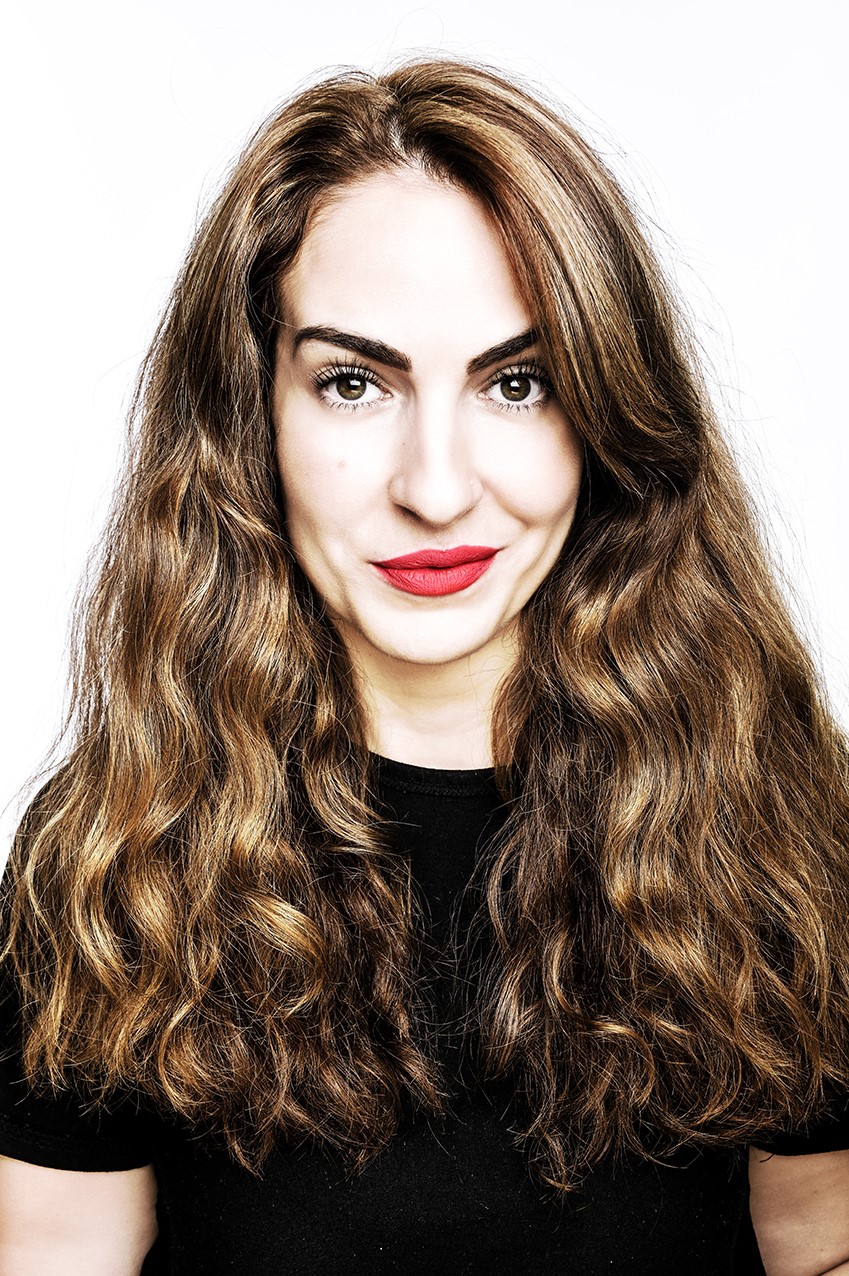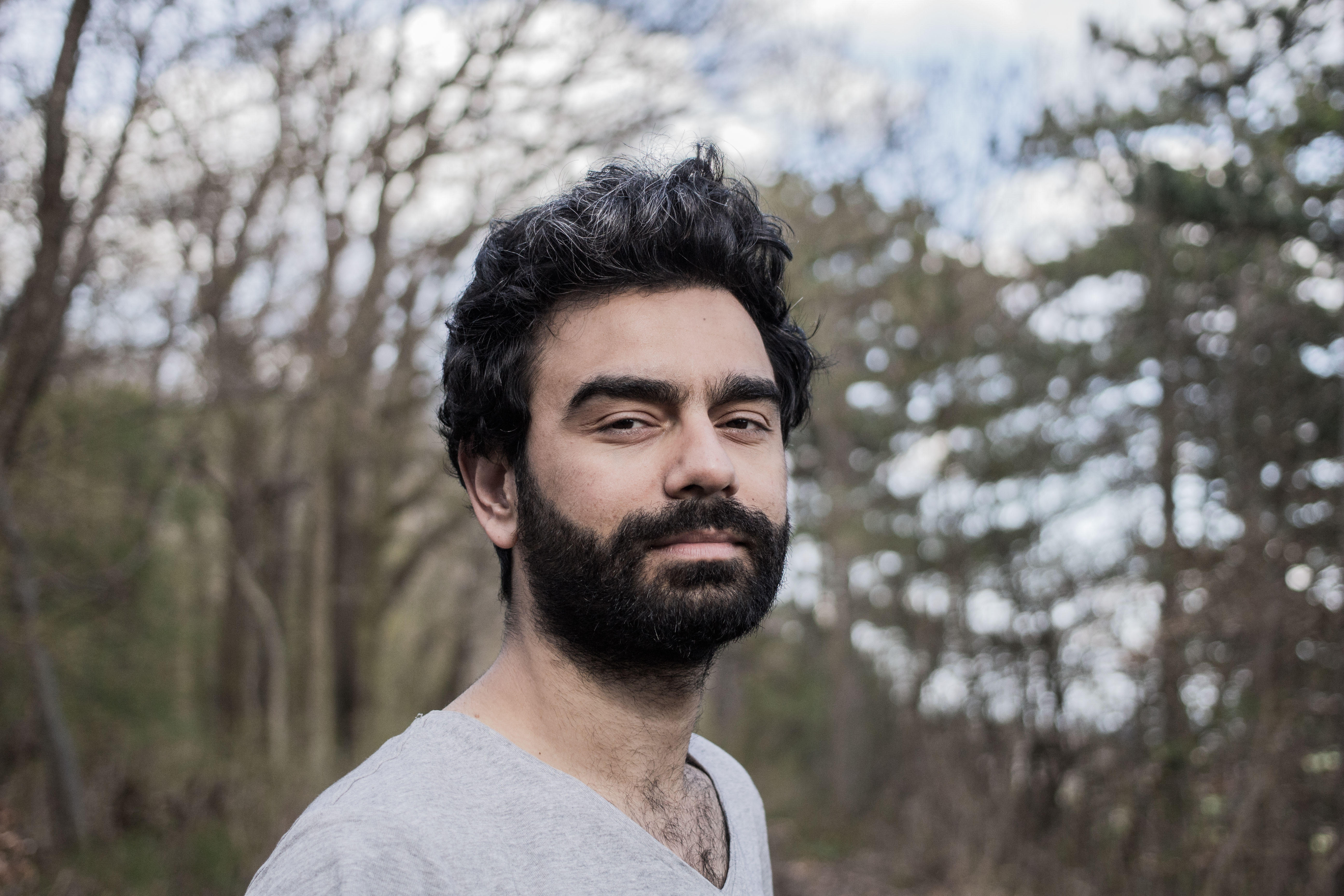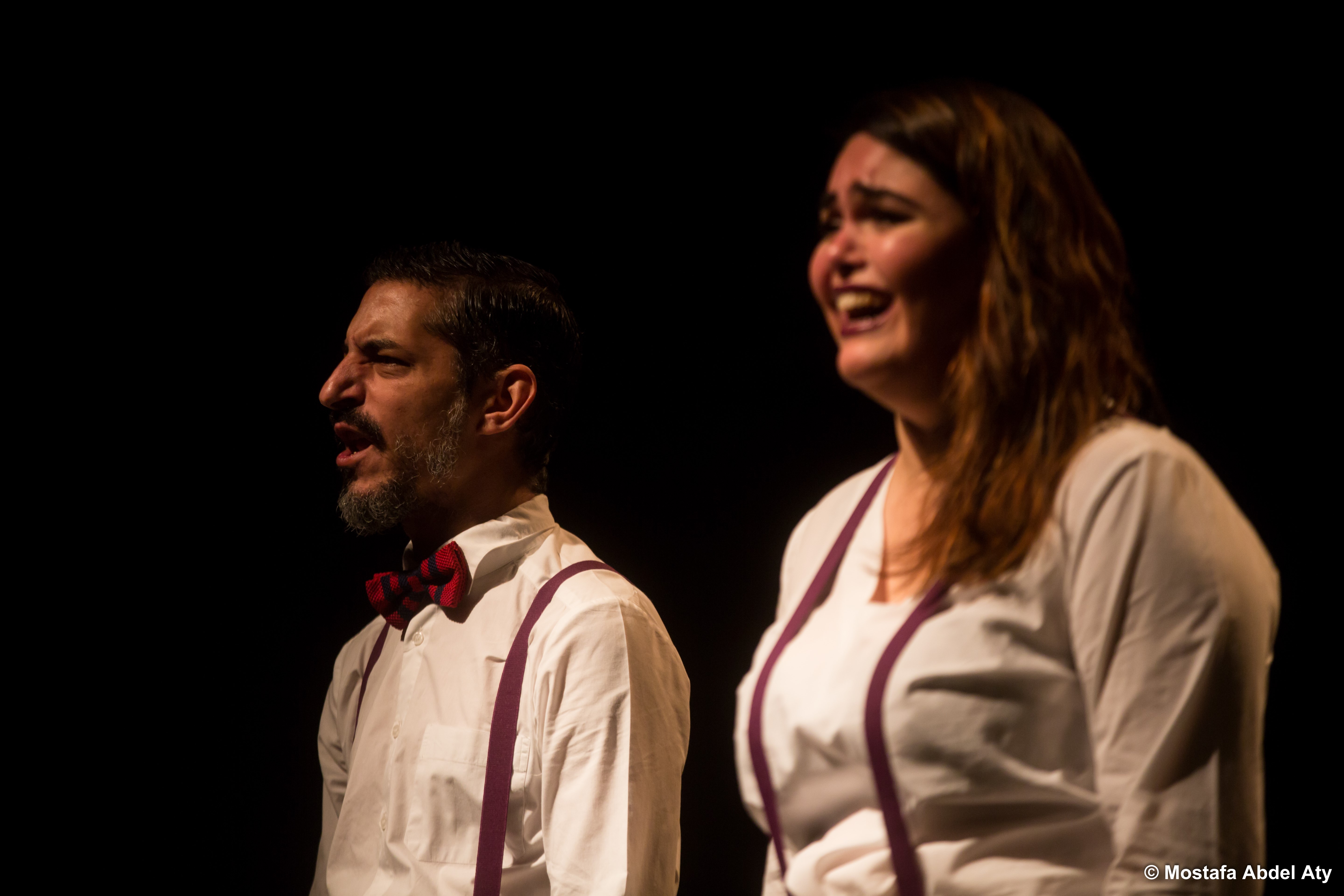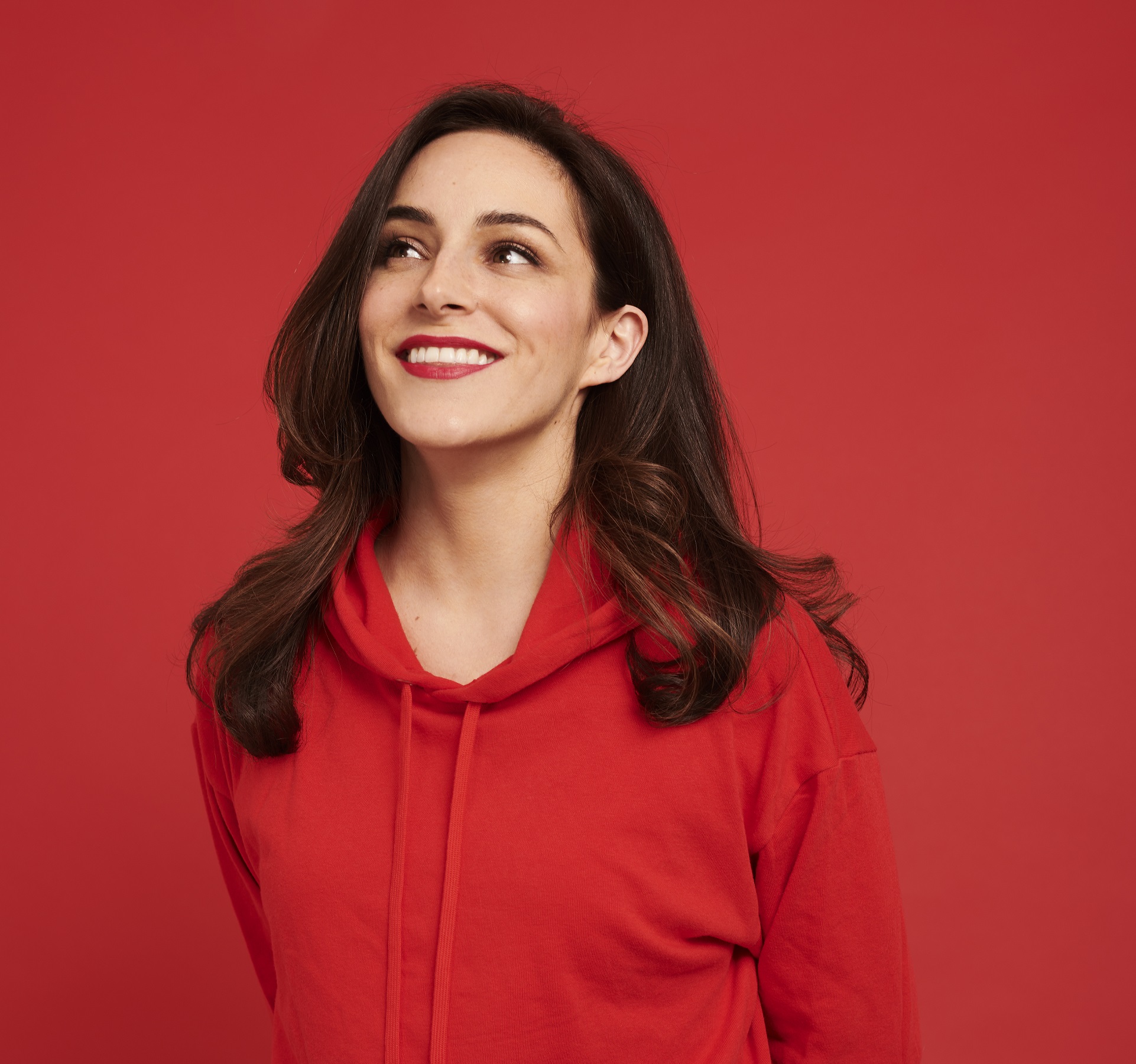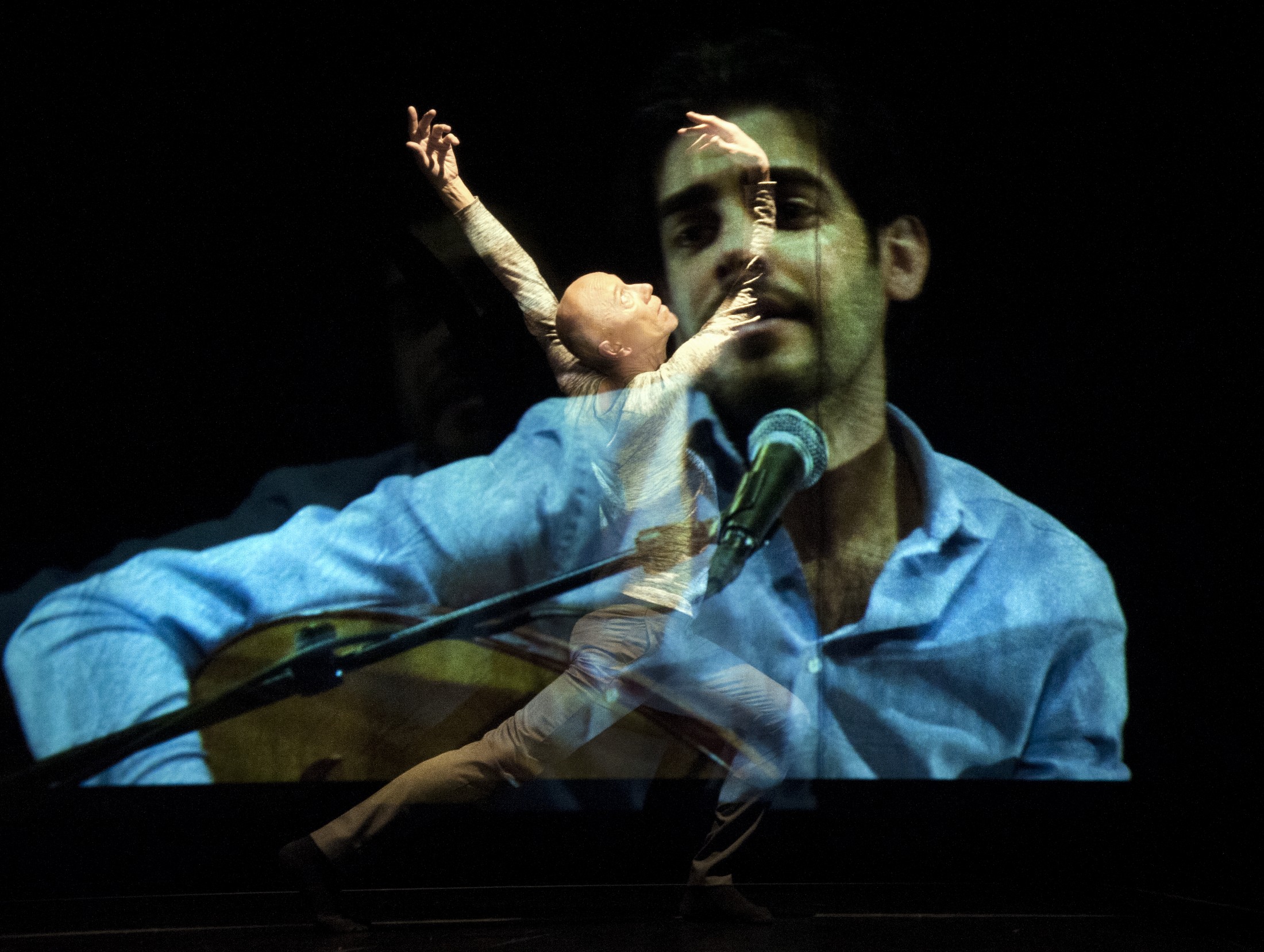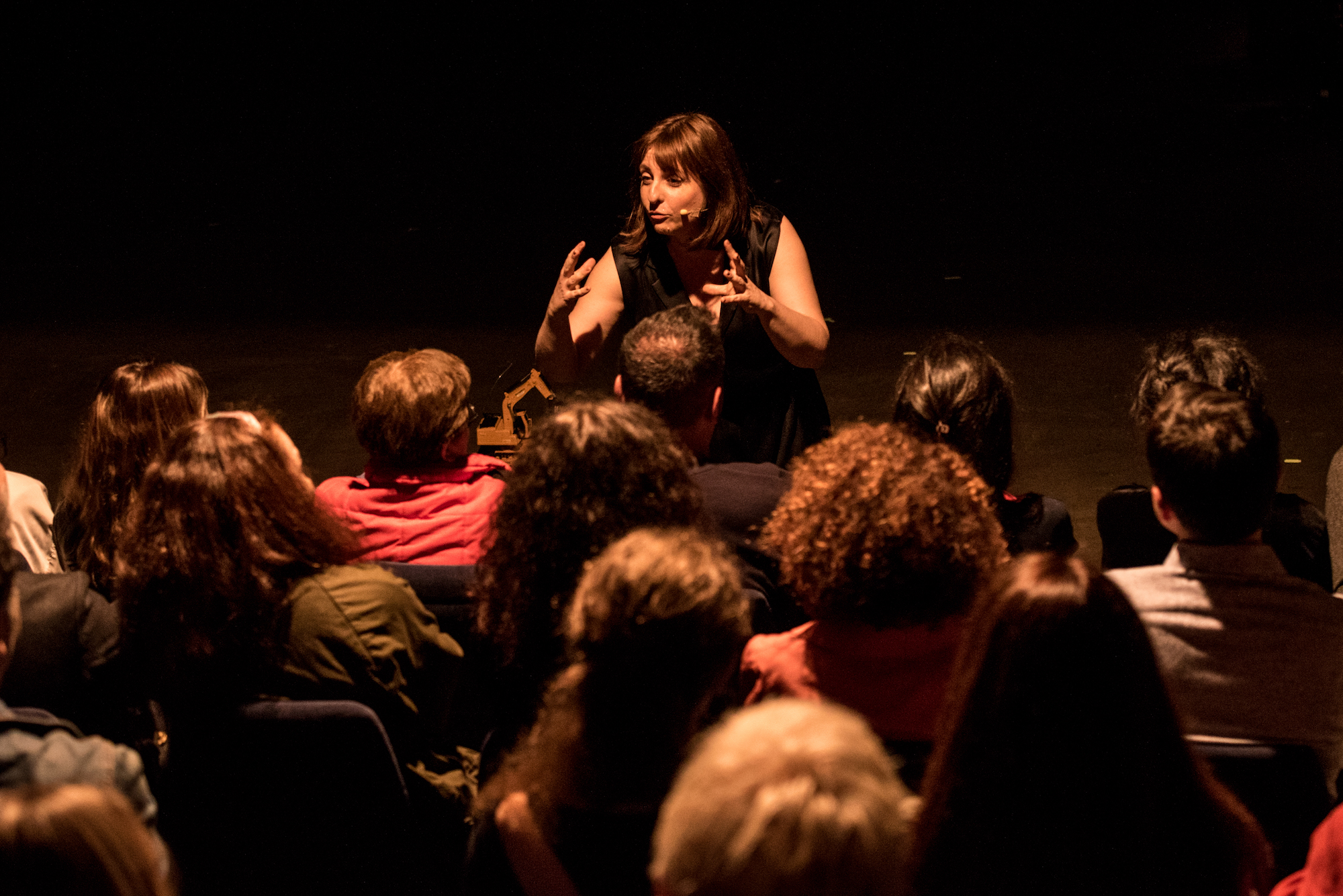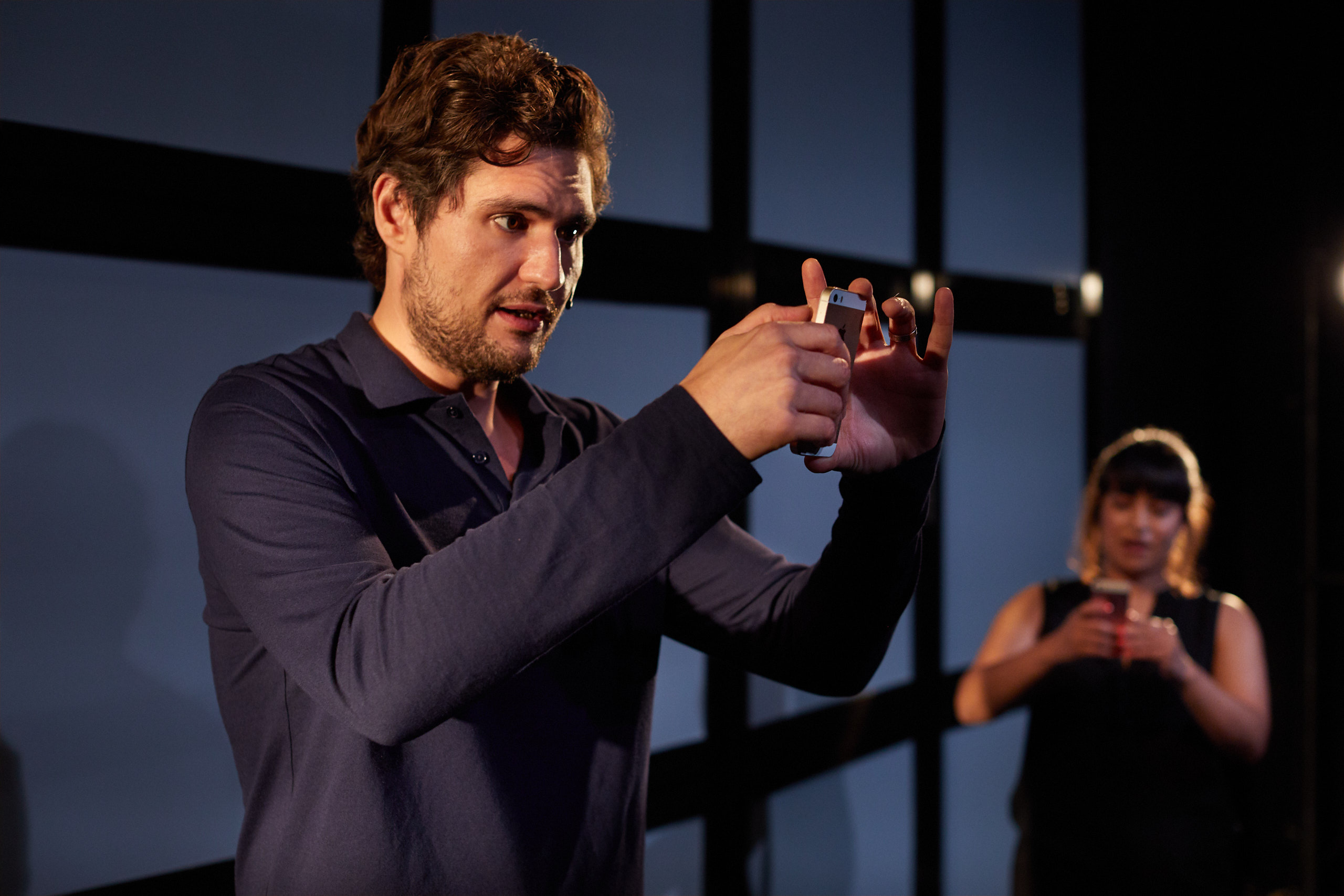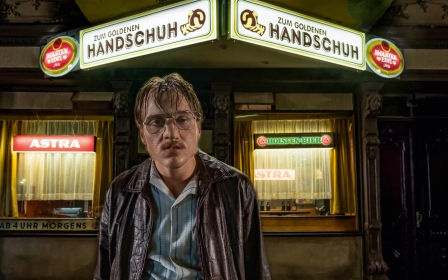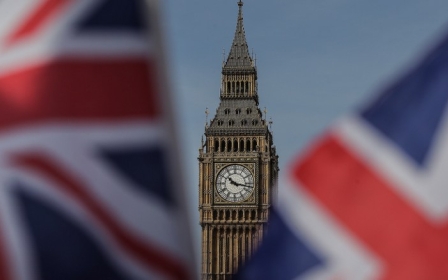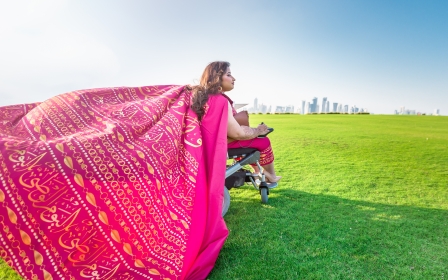Edinburgh 2019: Middle East performers at festival and fringe
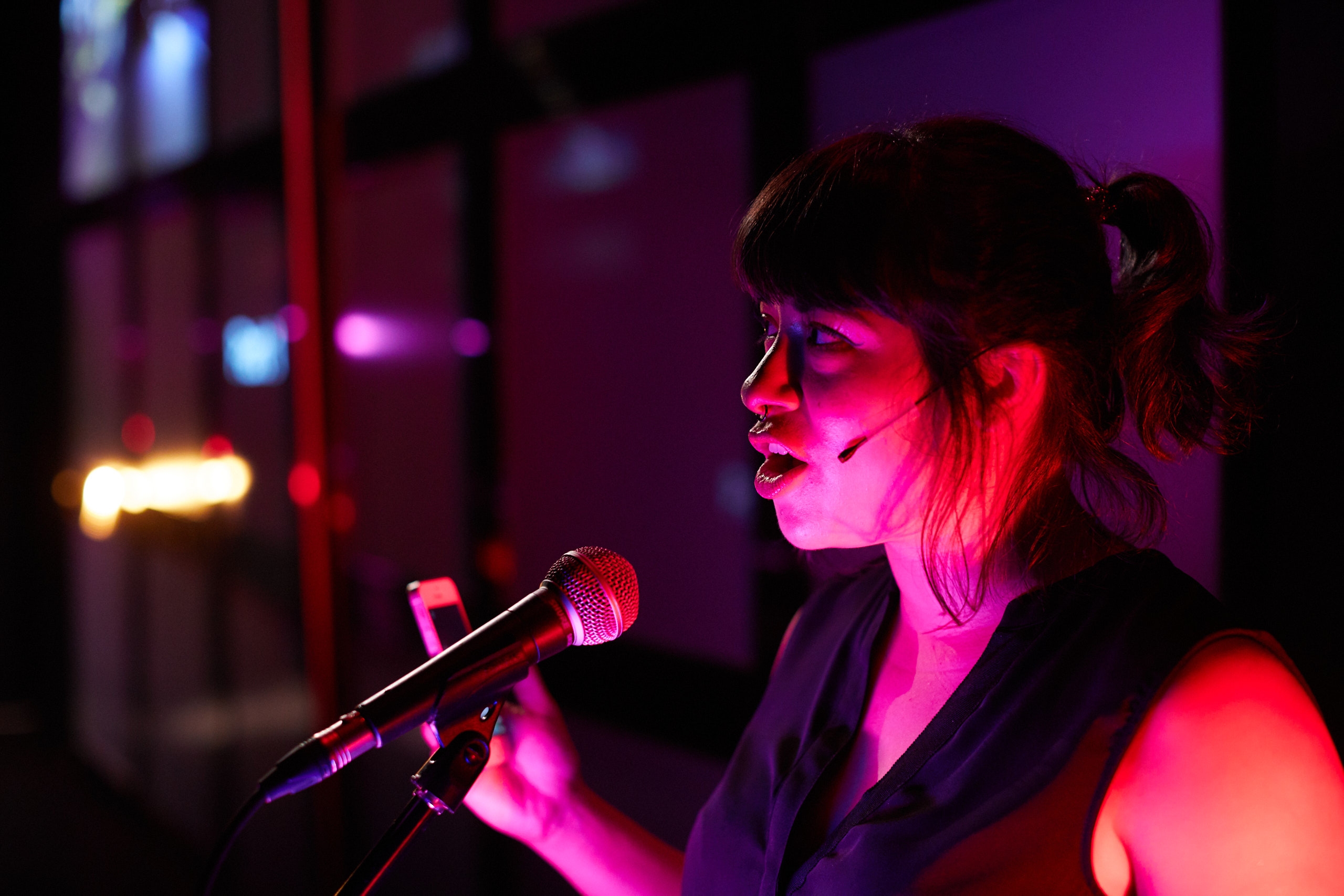
The Egyptian theatre director and playwright Ahmed El Attar was one of thousands of artists and performers in Scotland this month for the Edinburgh festivals, which boast of being the world’s biggest arts gathering.
El Attar is the artistic director of D-CAF, the Downtown Contemporary Arts Festival in Cairo, which held close to 40 events over the three weeks of the festival. In the same time-scale, Edinburgh had seen over 59,000 performances of nearly 4,000 shows, large and small, from theatre and comedy to classical music.
“In size, the number of shows, Edinburgh is the big one,” El Attar said.
The original Edinburgh International Festival (EIF) was staged in 1947, an attempt to lift spirits in Europe at the end of World War II. Soon the “Edinburgh Fringe Festival” emerged, when a group of theatre companies who were not invited to the main festival turned up in the city to stage their own shows.
The city’s book festival, itself with hundreds of authors, and visual art festivals were added later.
New MEE newsletter: Jerusalem Dispatch
Sign up to get the latest insights and analysis on Israel-Palestine, alongside Turkey Unpacked and other MEE newsletters
The Edinburgh Fringe has grown massively and continuously over 70 years, with a record 3,841 shows or events listed in 2019. The rule is still that there are no rules: anyone can turn up, find a space if they can, and perform.
From circus under the big top to solo plays or comedy, performers appear almost daily over 26 days, with some days off, typically Monday or Tuesday. Not a few will perform in two shows to try and offset the rising cost of rooms or apartments in peak tourist season.
The Fringe in particular is also an enormous trade fair as well as a celebration of theatre, where the world’s producers and promoters bring their own shows but also come shopping for others to take on tour.
Standout comedy
There was no major line-up of Middle Eastern or Arab work this year, but individual artists and acts still made their way. Two female comedians of Lebanese descent stood out: Esther Manito, with her provocatively-titled show “Crusade”, and the gifted Janine Harouni, who made the shortlist of the Edinburgh Comedy Awards, which picks the best of more than 700 comedy shows.
The EIF hosted the legendary oud player and singer, Marcel Khalife, in the historic Usher Hall, Edinburgh’s answer to London's Royal Albert Hall. It also staged a one-off reading of a remarkable new play, The Abyss, commissioned from Syrian playwright Ghiath al-Mhitawi as part of a series on the international climate crisis.
The EIF brought in 265 artists from all over the world for its new “You Are Here” strand, which invited the audience to "explore where we are now and, more importantly, where are we headed."
It was, said director Fergus Linehan, “a toe in the water, what happens with programming you begin to become interested in a region, and something materialises two or three years later. “
El Attar brought his own play, Before the Revolution, to the prestigious Summerhall venue, part of the Fringe. With just two actors, the total cost came to about £20,000 ($24,568) for flights, accommodation, visas, publicity and marketing, and the production space.
The fight for buzz and favourable reviews is fierce at the Edinburgh shows. It can also be a struggle to sell tickets. El Attar had 4,000 flyers printed for his show to hand out in the streets.
“The importance of Edinburgh is in opening up to a more international audience, meeting a UK audience, and opening up to the international professionals,” he said, pointing out that the director of Vancouver's PuSh performing arts festival was in the audience one night.
“There are people coming from Brazil, Hong Kong, it’s an opportunity to show the work with these programmers.”
Reluctance to engage
The Yorkshire playwright and former comedy writer Henry Naylor has written a set of plays about the Middle East and the “war on terror” that have garnered strong reviews and awards in Edinburgh over the years.
His new play for 2019 is The Nights. It concerns a young British tabloid journalist's efforts to sensationalise an article about Shamima Begum, the teenage “jihadi bride”, who was refused permission to return to the UK with her child from Syria.
Naylor - known for hit comedies including the BBC's Dead Ringers and 80s show Spitting Image - was inspired to write his plays initially by a visit to Kabul in 2003. He praised last year’s “Arab Arts Focus” season in the festivals, which brought a number of productions from the region. But work was too thin on the ground this year, he said.
“There’s a danger that if things drop off the media radar the artistic community won’t reflect them,” he said, from the continuing fallout from the wars in Iraq and Afghanistan, to cases of brutality by those claiming to be “world’s policeman”, to the ongoing conflict in Syria.
“I get frustrated about how little artists engage. Artists have to make entertaining and interesting stories about things that have fallen off the news agenda to get people to engage with them.”
The Abyss
The Abyss is written by the Syrian playwright Ghiath al-Mhitawi, one of five international writers commissioned by the Edinburgh International Festival to take on the global climate crisis.
The performance in Edinburgh was a “rehearsed reading”, as the play is still a work in progress. The actors kept their scripts in hand, after three days' work on the piece.
A small audience of dedicated theatregoers sat in a wide circle of chairs, on the black-floored studio space. The only stage scenery was a simple table, with an inlaid oriental box. The music was a gentle piano melody of longing.
But within moments the audience was utterly absorbed, still and perfectly silent.
Mhitawi’s story is set in Berlin, where a Syrian doctor, played by Lara Sawalha, is working while sending money back home to support her parents and family. One day her brother, played by Egyptian actor Amir El-Masry, turns up on her doorstep.
Following a journey on a smugglers’ boat where the refugees paid for a chance to either live or drown, Amir is now looking into the abyss. But for Lara’s friend, acted by Alison O’Donnell, there's a bigger threat at play: the global climate crisis.
In an electrifying, intense, finely tuned performance by El-Masry, the horrors of the humanitarian crisis in Syria, of what he has seen and suffered, is matched against a Westerner’s worry for the planet. It’s a spellbinding, 45-minute piece of work, which will be developed into a full-length play later this year.
Before the Revolution
A couple, robed in white, stand barefooted in a white bed of nails. Unmoving, they tell stories of Egypt before the revolution, with the English translation in subtitles.
Domestic scenes - the rape of a serving girl by her master, a marriage dripping with scorn and anger - mingle with television soap operas, assassinations, terror attacks, transport disasters, torture, religious sermons, and the names of those killed. In the end, social frustration finds an outlet in sardonic humour.
This production is written and directed by Ahmed El Attar, and is as much a piece of visual and sound art as theatre. It puts disjointed snapshots from 1990s and 2000s Egypt together to create a tableau of stifling oppression and depression, dysfunction and corruption. It is performed by Syria’s Nanda Mohammad and the Egyptian-trained Ramsi Lehner.
A scratchy, hammering soundtrack is by Hassan Khan, one of the Middle East’s most talented composers and artists and an exceptional writer, who won the Silver Lion in Venice two years ago with a garden installation, Composition for a Public Park. Khan's work deserves its own Edinburgh showing.
Marcel Khalife and Rami Khalife
The Edinburgh International Festival turned over the 1,700 seat Usher Hall, completed in 1914, to a concert by legendary Lebanese singer and oud player Marcel Khalife, whom it called the "Bob Dylan of the Arabic world” and a folk hero. This was the most ambitious, the grandest, and the most disappointing of the festival acts from the Middle East.
There was a large Arabic-speaking group in the hall who sang along delightedly with Khalife’s hits such as Passport. But those who came to the singer's Edinburgh debut hoping to see a traditional oud performance from a virtuoso were surely left disappointed.
Instead, there was a heavy blast of fusion-rock with electronic and dance music, in which Marcel Khalife’s oud, and his singing, often took second place to his son Marcel Khalife on piano and keyboard, and percussionist Aymeric Westrich.
The younger Khalife’s Requiem to Beirut, its scenes and its suffering, was a rich composition of wild crescendos and soothing lows. But the concert needed to be better produced by the festival.
Only Rami Khalife was translating for his father, and many explanations were lost. With no surtitles for the songs, and no professional translation, the organisers missed an opportunity to bring Arab work home to an English-speaking audience.
Esther Manito: Crusade
Female comedians are some of the strongest emerging acts drawn from the Islamic and Arab world.
British-Lebanese comic Esther Manito, who was the first female comedian to perform in the Dubai Opera House, brought to Edinburgh a more daring performance.
Her one-hour show, Crusade, includes jokes about her English husband's attempt to make IKEA furniture with her divorced Arab father. “I wanted her to be an accountant, not a bloody buffoon,” her father is heard saying at the start of the show.
She then goes into frightening detail on the luxuriant hairiness of a woman of Arab descent.
Laughters aside, her piece has a serious message: she lampoo0ns fundamentalist clerics for claiming women’s brains are a quarter the size of men’s and notes that female campaigners for the right to drive are still in prison in Saudi Arabia. She tells her audience she is “recognising women proud of being Arab, proud of being Muslim, but fighting against the misogyny that extremists have brought into our lives.”
Stand Up with Janine Harouni (Please Remain Seated)
The Lebanese-American comedian Janine Harouni opened her Edinburgh show in stormy weather, with audience members arriving late, dripping with rain.
In a strong New York accent, she describes life growing up in the conservative and Catholic part of Staten Island. Her mother is an Italian-American. Her father is the son of Middle-Eastern immigrants, and a supporter of US President Donald Trump.
Harouni is slick, sharp, and very funny. She talks of overhearing Americans saying Arabs should be in detainment camps, and that she is able to "pass as white" because of her own skin colour.
She begins the performance by making jokes about her parents. But following a horrific accident from which she thought she would never walk again, her tone shifts, and the piece turns into a moving love letter for her parents' care for her.
Stand Up with Janine Harouni (Please Remain Seated) won a nomination for the Edinburgh Comedy Awards, the top prize in British comedy.
Ali and Alpo
Originally billed as a "beautiful wordless dialogue" between music and dance from two different cultures, Ali and Alpo came to Edinburgh with much more to say.
The celebrated Iraqi oud player Ali Alawad had paired up with the Finnish dancer Alpo Aaltokoski to produce a show for the Scottish city. But two weeks before the festival Alawad’s asylum application was rejected in Finland, and he left the country to avoid forced repatriation.
Even though Alawad could not travel to Edinburgh, the show went on.
As Alpo performed live for the audience, a video of Alawad playing oud was projected onto two transparent screens at the front and back of the stage. Through this setup, the dancer at times seemed almost superimposed on the screen. Reviewers loved the show for defying the odds.
At 60 Alpo is a veteran of the dance scene in Finland. His interpretations ran from lying like a stranded insect on his back, his legs beating the air, to beautifully capturing a bird in flight, creating long soaring wings with a rolling sweep of his arms, and fluttering in a hover.
Alawad’s songs were rich in yearning and longing. The two bowed together - Ali on the screen, Alpo on stage.
House of Hundred
The ghosts of an Ottoman mansion in Istanbul, with its 15 rooms, three halls, a garden and cows, come alive in House of Hundred.
The multimedia piece is based on Turkish writer and performer Yesim Ozsoy’s family history. The memories of the building, through the chaos of war and the collapse of the Ottoman Empire, even the murder of a Sultan, take shape in front of the audience as household objects tell their stories, the little characters observing great events.
A Qing dynasty vessel from the imperial kitchens pleads not to be filled with onions; a rug from Tehran, whose insides still smell of the east; refugee cows from Crimea speak in turn, through the writer and performer Yesim Ozsoy.
Houses have souls: a window wants to fight demolition by the clawing diggers. “Nobody and nothing ever really disappears,” declares a diamond ring, taken to be sold. “Don’t you ever forget this.”
Rich Kids: A History of Shopping Malls in Tehran
The British-Iranian playwright Javaad Alipoor is one of the sharpest young talents emerging in British theatre. Two years ago his play The Believers Art But Brothers, where the audience joined a Whatsapp group during the play to demonstrate the power of social media as a recruiting tool for extremists, won a top “Fringe First” award in Edinburgh.
The piece - drawing parallels between young British men recruited by ISIS, and young American men who joined far-right groups in the US - returned for a week as part of the British Council-funded showcase of plays for international promoters.
At the same time Alipoor won a second Fringe First award with his new play, Rich Kids: A History of Shopping Malls in Tehran. It tells the story of the car-crash deaths of two young members of Iran’s new elite in a recreated Instagram feed.
Middle East Eye delivers independent and unrivalled coverage and analysis of the Middle East, North Africa and beyond. To learn more about republishing this content and the associated fees, please fill out this form. More about MEE can be found here.


